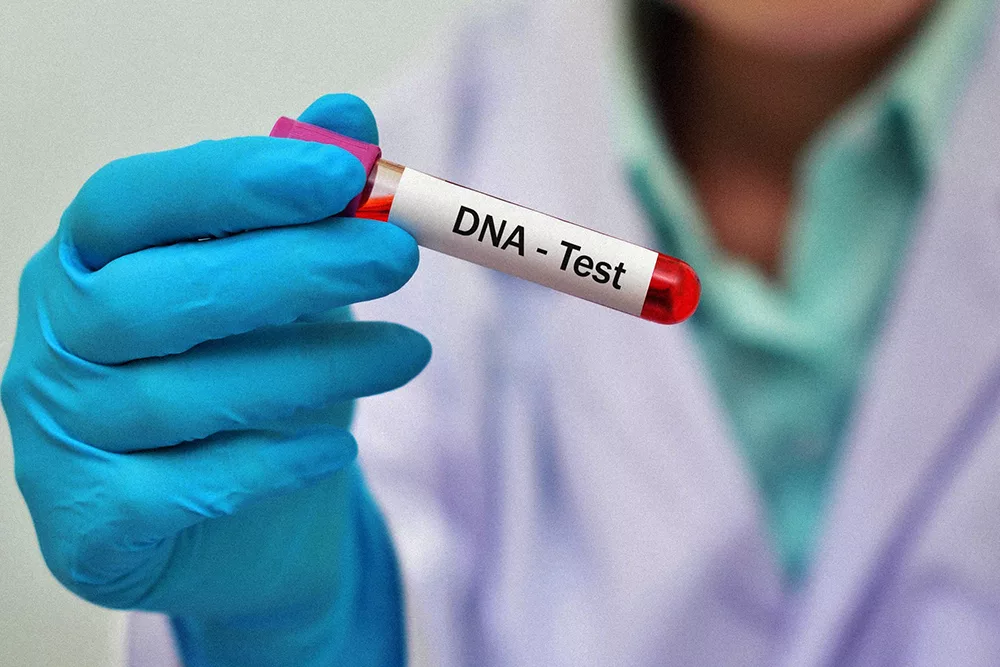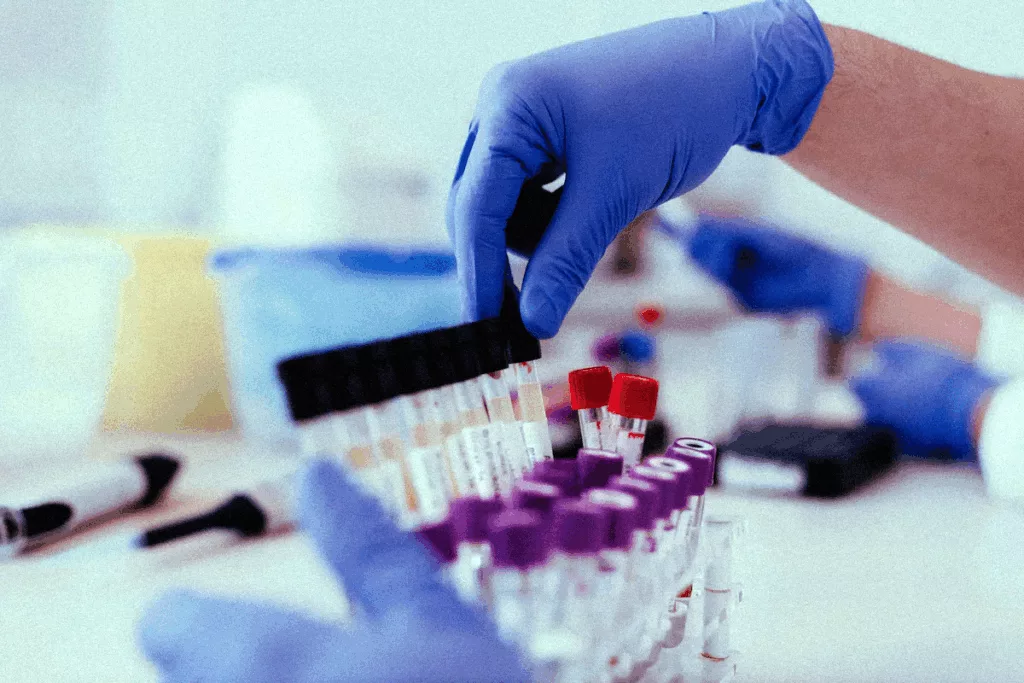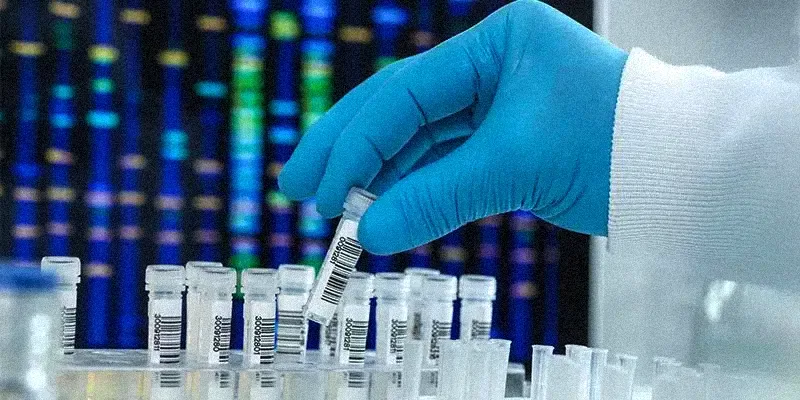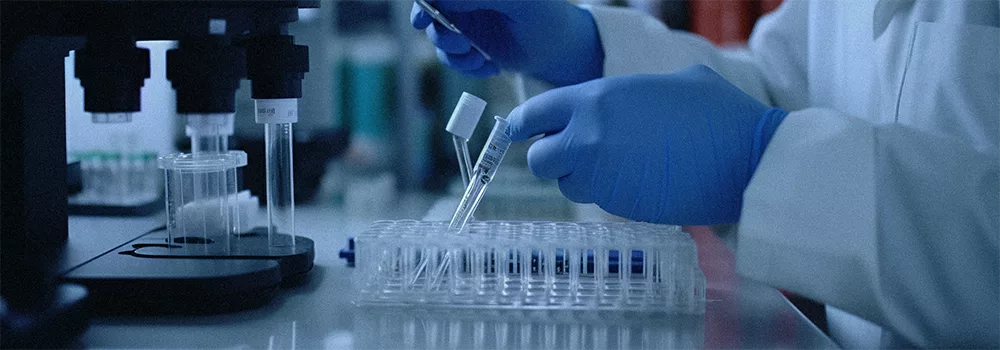Genetic testing: the best DNA tests on the market in 2025
Genetic tests can help you find out your family tree, predisposition to diseases, and much more. With their help, you can find out where your ancestors came from, what your genetic risk of developing various diseases is, and other important information about your DNA. In this article, we will tell you about the best DNA tests available in 2025 and what you should look for when choosing them.
Contents
Highlights
- In 2025, modern DNA tests appeared on the market, which differ in the quality of results, and the main selection criteria are accuracy, functionality, and cost.
- The best DNA tests, such as MyHeritage DNA, Living DNA, AncestryDNA, 23andMe, and FamilyTreeDNA, offer a wide range of analyses covering both ethnicity and health.
- The choice of a suitable DNA test should be based on its intended use, cost, and user feedback, which is the key to finding the best solution.
The best DNA tests in 2025
In 2025, hundreds of DNA tests have appeared on the market, varying in quality and accuracy of results. Choosing the best DNA test can be a daunting task, but fortunately, there are some criteria to help you make the right choice. Accuracy, functionality, and overall cost are the main factors to consider.
The best DNA tests in 2025 offer extremely high accuracy of results, often reaching 99% or even 99.9%. The results are tested in laboratories staffed by genealogy experts, which guarantees their reliability. You should also pay attention to the method of sample collection, which should be safe and convenient for you.
When choosing a test, it is worth paying attention to the number of ethnic regions analyzed and the percentage of alleged ancestors, which can significantly affect the quality of the DNA kit. This year, the leaders are MyHeritage DNA, Living DNA, AncestryDNA, 23andMe, and FamilyTreeDNA.

MyHeritage DNA: detailed information about ethnicity
MyHeritage DNA offers detailed ethnicity results for a deeper understanding of your genealogy and family tracing. The test analyzes ethnicity in 2114 regions, allowing you to conduct in-depth genealogical analysis and identify ethnic traits associated with geographic regions.
One of the main advantages of MyHeritage DNA is the ability to understand your ethnicity, but it is worth remembering its limitations. The predictions for the continents are fairly stable, but at the country level they can vary more, and the data does not cover the last 300 years. Nevertheless, MyHeritage DNA provides valuable information that can be very useful when building a family tree.
Ultimately, although MyHeritage DNA test is not an exact science, it is a great tool for finding out ethnicity and genealogy. Thanks to its ease of use and detailed reports, it is one of the best DNA tests on the market in 2025.
Living DNA: tests for health and ancestry
Living DNA offers a comprehensive analysis of ancestral history spanning 80,000 years, allowing you to trace your family history over time. With more than 20 billion historical records, users can learn details about their ancestors over the centuries.
One of the unique aspects of living DNA is the combination of medical and genealogical analysis. Y-DNA and mtDNA tests analyze patterns in the Y- and X-chromosomes, allowing you to trace both paternal and maternal lines. This comprehensive approach makes living DNA an ideal choice for those who want to understand both their family tree and their health.
The waiting time for a live DNA test report is six to eight weeks, which is standard for such advanced tests. Thanks to detailed results and an extensive database, living DNA provides complete and accurate genetic information.
AncestryDNA: genealogy research and historical documents
AncestryDNA offers one of the most advanced tools for genealogy research thanks to its huge database and access to historical documents. These documents help in genealogy research by allowing users to browse their past and find previously unknown relatives.
AncestryDNA’s large database significantly increases the chances of finding relatives and identifying ancestors. It is thanks to this large database that users can build a family tree with greater accuracy and detail.
AncestryDNA is the perfect tool for those who want to explore their family history and discover new aspects of their genealogy. Thanks to its modern tools and historical documents, it is one of the best DNA tests for genealogists.
23andMe: complete health and genealogy report
23andMe sets itself apart from other DNA tests by delivering results quickly and providing comprehensive health and genealogy reports. You can get your test results in just three to five days, making it one of the fastest on the market.
The DNA test results certificate includes genetic markers, genetic identification data, and X- or Y-chromosome matches for comprehensive analysis. In addition, the cost of a detailed ancestry and health test does not exceed $300, making it affordable.
FamilyTreeDNA: maternal and paternal lines
FamilyTreeDNA specializes in conducting DNA tests that allow you to trace both maternal and paternal ancestry and family tree. With these tests, users can find out percentage ethnicity, surname history, and conduct interactive research on the paternal ancestral line.
FamilyTreeDNA tests also offer family matches and a migration map to facilitate the search for family connections. The chromosome browser analysis allows you to study hereditary genes and mutations, which is key to understanding genealogy.
The report for each haplogroup includes an extended description, which is useful for a better understanding of genetic ancestry. FamilyTreeDNA is an indispensable tool for those who want to explore their roots and understand their family history.
How DNA tests work

The process of conducting a DNA test involves several steps: ordering a kit, collecting a sample, sending it to the laboratory, and waiting for the results.
Each of these steps is crucial to obtaining accurate and reliable results.
Taking DNA samples
Different methods can be used to collect a DNA sample, such as a cheek swab, hair swab, or chewing gum. Cheek swabbing is one of the most popular methods of collecting DNA samples because it is completely safe and painless.
The user can swab the inside of the cheek themselves, which makes the whole process extremely convenient. There are also special saliva kits available to make it easier for babies and the elderly to participate in testing.
Analysis in the laboratory
Analysis in our laboratory is another key step in the DNA testing process. Thanks to the evolution of algorithms based on statistical calculations of population genetics and the development of artificial intelligence systems, laboratories are able to perform extremely accurate genetic analyses. An example of this is the 23andMe laboratory, which is certified according to CLIA and CAP standards, which indicates high quality standards.
During the analysis, DNA samples are subjected to a detailed study, which includes the detection of genetic markers and comparison of DNA with databases. It is through this process that accurate results regarding ethnicity, health, and genealogy can be obtained, as well as the result of the DNA test.
Getting the results
The waiting time for DNA test results is usually 3 to 6 weeks, although some laboratories, such as 23andMe, provide results within 3 to 5 days. The DNA test results report is usually provided in PDF format, with interactive maps and percentages of ethnic groups.
In other laboratories, results can be provided within 72 hours, indicating that waiting times may vary. Laboratories often provide DNA test results in a variety of formats, such as a mobile app, website, or electronic report, making it easier for users to access the information.
Thanks to modern technology, DNA test results can be obtained in the form of a mobile application, making them always at hand and easily accessible.
Types of DNA tests
There are hundreds of DNA tests on the market, which can be divided into:
- health tests
- ethnicity tests
- food tests
- paternity tests
Determining the purpose of the DNA test helps to choose the optimal type of test, whether it is information about ancestry, health, or family relationships.

Autosomal DNA
Autosomal DNA testing is used to find cousins and close relatives, as well as to determine ethnicity. DNA test reports can be complete and personalized, allowing the user to access the original data.
Autosomal tests analyze the first 22 pairs of chromosomes, allowing you to determine kinship up to five generations back. Analyzing more than 1,500 regions, DNA tests can effectively indicate the ethnic diversity of ancestors.
The MyHeritage DNA kit, for example, does not analyze maternal and paternal lines, which can limit the understanding of full kinship, but it does provide valuable information about ancestors and DNA sets, as well as nutritional and exercise recommendations.
Y-DNA
The Y-DNA test is important for men because it analyzes the Y chromosome, which is inherited exclusively through the paternal line, as well as the Y chromosome.
FamilyTreeDNA offers Y-DNA and mtDNA tests to trace paternal and maternal lines, which is very useful for genealogical research.
Mitochondrial DNA
Mitochondrial DNA is always inherited from the mother, so both men and women can undergo maternal testing. Mitochondrial DNA analysis analyzes mitochondria inherited from the mother, which provides information about the geographical areas of ancestral residence and traces the mother’s family tree. Maternal lineage analysis provides valuable information about genetic inheritance.
A haplogroup is a group of people who share a common ancestor and plays a key role in mitochondrial DNA analysis. With mitochondrial DNA testing, you can go back 50 generations, which makes it possible to study the history of the maternal line and the DNA of people.
Areas of application of DNA tests
DNA analysis has a wide range of applications, including genealogical research, health assessment, and ethnic identification. A genetic test can also be useful in these areas.
Each of these applications provides unique information that can be extremely valuable to users.

Genealogical research
DNA tests can provide information on ancestral locations and percentages of each region, including geographic areas. An ancestry DNA test report includes the percentage distribution of ethnic groups, heat maps, and information about biomarkers and genetic variants.
Y-chromosome haplogroup analysis is one of the tests used to establish ancestry, showing kinship on the paternal line, and mitochondrial DNA analysis shows kinship on the maternal line. DNA analysis can confirm the relationship not only between parents and children, but also between siblings, and help to obtain information about ancestors and their origins. An ancestry test can also provide valuable information about genealogy.
Analysis of Y-DNA and mitochondrial DNA can show that up to 50 generations share common ancestors, allowing you to explore your family history over the centuries.
Health assessment
Predictive DNA tests help to assess the risk of developing certain diseases based on gene analysis and genetic predisposition. 23andMe offers health risk assessment and disease carrier tests, which is very useful for preventive health care.
Do:
DNA analysis also provides nutritional recommendations, food intolerances, and a customized menu for better health. Workout recommendations and information about physical fitness are another benefit of these tests, although it is important to remember that it is impossible to get a test that is 100% accurate.
Text with a keyword included: In recent years, there has been a significant increase in interest in environmental science among young people.
DNA tests include:
- dietary recommendations
- information on food intolerance
- personalized menus for better health management
- training recommendations
- fitness information
It is important to remember that it is impossible to get a test with 100% accuracy.
A large database analyzes more genes more efficiently, which increases the accuracy of the results and allows for more specific health recommendations in most cases.
Ethnic identification
Autosomal DNA tests can determine ethnicity based on the analysis of inherited chromosomes, which can reveal the ethnic diversity of ancestors. Mitochondrial DNA analysis is useful for tracing the maternal line of ancestors and can provide information about geographic origin.
DNA tests can also identify haplogroups, which help determine ethnicity and information about ancestral geographic regions hundreds of years ago. Our genes record the history of the places associated with our ancestors, and by taking a DNA family tree test, we can learn about our ancestors’ origins.
Security of genetic data
DNA testing companies must adhere to high standards of data privacy. DNA testing laboratories use SSL encryption and data security controls to protect user privacy.
Data encryption
Many laboratories use TLS-level data encryption to protect stored user information. Encryption of genetic data is a key component of protecting user privacy, and implementing data encryption and data storage procedures is necessary to ensure the confidentiality of genetic data.
Some DNA analysis companies report data storage procedures to protect against unauthorized access, which further increases user confidence.
Company privacy policy
The DNA test has a privacy policy that explains the use of the DNA sample, which is key to understanding how your data will be used. DNA is anonymized before testing, which further protects the privacy of users.
In some cases, law enforcement can access DNA, but there is no consensus in the law regarding the use of DNA in court, which may be an important factor to consider.
Choosing the right DNA test
Choosing the right DNA test begins with determining its purpose. Whether it is to understand ancestry, assess health status, or confirm family relationships, defining the purpose will help you choose the most appropriate type of test to help detect disease.

Research objectives
A DNA test allows you to learn more about your ancestral history and establish stronger ties with your family. To determine the price of genetic testing, you first need to choose the type of test that best suits your needs. One option you may be considering is an ancestral DNA test.
The cost of a DNA test ranges from $50 to $170, and full results can cost up to $600, so choosing the right test also depends on your budget. Patient reviews can influence the choice of a laboratory, especially if there are negative reviews, which should be taken into account when making a decision.
Price comparison
The cost of a DNA test depends on the type of test, the amount of analysis and the laboratory chosen. Standard prices for DNA tests include genetic analysis and a final report with results, but high-quality DNA tests for private use cost an average of PLN 1,300 to 1,500.
The prices of DNA tests can vary greatly, and comparing the available options will help you find the best test for your needs and budget.
User reviews
Users praise the MyHeritage DNA kit for its clear results, personalized video, and the best DNA matching technology. The downside to the DNA tests offered by iGenea is the higher cost, which may be an important factor to consider.
Smaller brands offering DNA tests offer higher quality products at attractive prices, which suggests that it is worth paying attention to user reviews when choosing a suitable test. Negative reviews of a DNA lab and questions asked may indicate personal disappointment with the user, which is also worth considering.
Bottom line
DNA tests in 2025 will offer extremely accurate and detailed information about ethnicity, disease susceptibility, and genealogy. Choosing the right test depends on your individual needs and goals. MyHeritage DNA, Living DNA, AncestryDNA, 23andMe, and FamilyTreeDNA are the best options on the market, each with unique benefits.
The security of your genetic data is key, and DNA testing companies use advanced encryption methods and privacy policies to protect your data. Whether you are interested in genealogy, health, or ethnic identification, a DNA test can provide you with valuable information and reveal previously unknown aspects of your life. Investing in your health and knowledge of your ancestors is an investment that will pay dividends for a lifetime.
Frequently asked questions
The best DNA tests in 2025 are MyHeritage DNA, Living DNA, AncestryDNA, 23andMe, and FamilyTreeDNA. Each of these options offers unique features and capabilities for genetic analysis.
To conduct a DNA test, you need to order a kit, take a sample, send it to the laboratory, and wait for the results of the analysis.
The types of DNA tests are primarily autosomal, Y-DNA, and mitochondrial DNA tests, which differ in terms of the scope of analysis and application. Each of these tests provides unique information about genetic heritage.
DNA analysis has a wide range of applications, including genealogical research, health assessment, and ethnic identification. This tool provides valuable information about ancestry and potential susceptibility to disease.
Your genetic data is safe because companies use advanced encryption methods and privacy policies to protect user data.